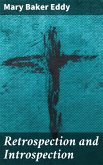In "The Jerusalem Sinner Saved; or, Good News for the Vilest of Men," John Bunyan masterfully interweaves allegory with profound theological inquiry, presenting a compelling narrative that offers hope and redemption to even the most lost souls. Written during a period when Bunyan was grappling with persecution for his Nonconformist beliefs, the book adopts a conversational tone that beckons readers into a dialogue about sin, grace, and salvation, reflecting the Puritan tradition's emphasis on personal spiritual experience. The text is richly adorned with Biblical references and vivid imagery, illustrating the transformative power of divine grace as it permeates the depths of human depravity. John Bunyan, a 17th-century English writer and theologian, is widely recognized as one of the most significant figures in Christian literature. His own tumultuous journey from a life of vice to Christian faith profoundly shaped his writing, particularly in "The Jerusalem Sinner Saved," where he elucidates the path to redemption. Bunyan's background as a tinker'Äîan itinerant tradesman'Äîallowed him to connect with a broad audience, imbuing his works with authenticity and emotional resonance drawn from his life experiences and spiritual struggles. This transformative work is highly recommended for those seeking spiritual solace and a deeper understanding of grace. As pertinent today as it was in Bunyan's era, the text not only serves as a theological treatise but also a pathway for anyone grappling with guilt, fear, or doubt. By exploring the depths of human sinfulness and the heights of divine mercy, readers are invited to embrace the radical message that redemption is always within reach.
Dieser Download kann aus rechtlichen Gründen nur mit Rechnungsadresse in A, B, BG, CY, CZ, D, DK, EW, E, FIN, F, GR, H, IRL, I, LT, L, LR, M, NL, PL, P, R, S, SLO, SK ausgeliefert werden.









